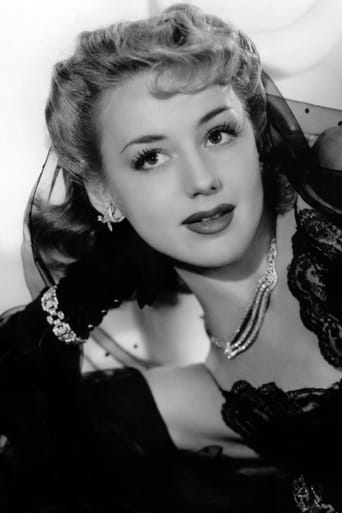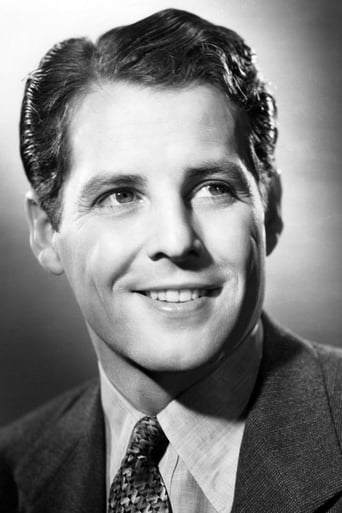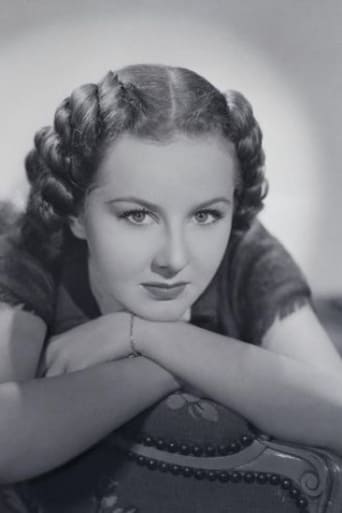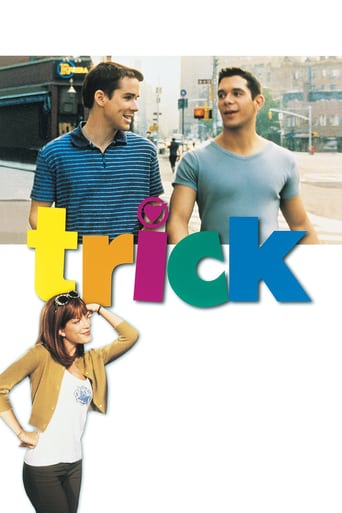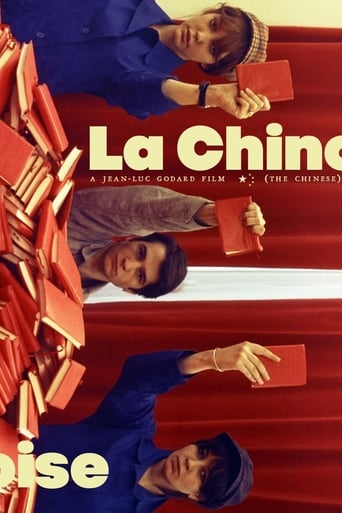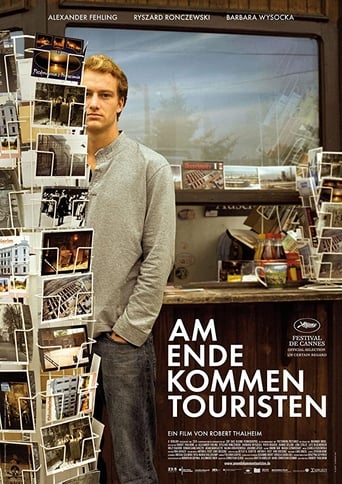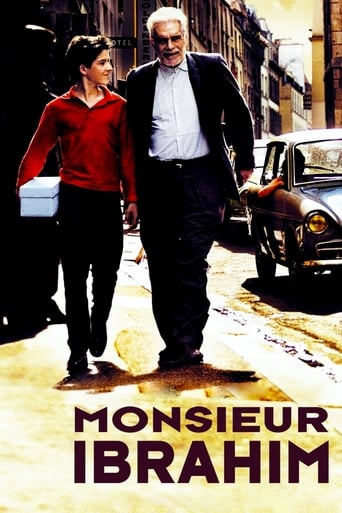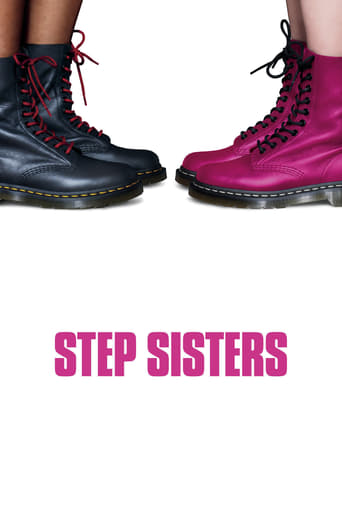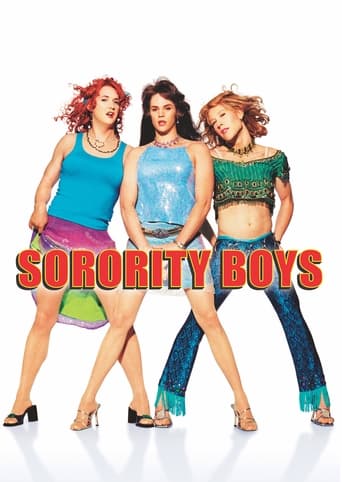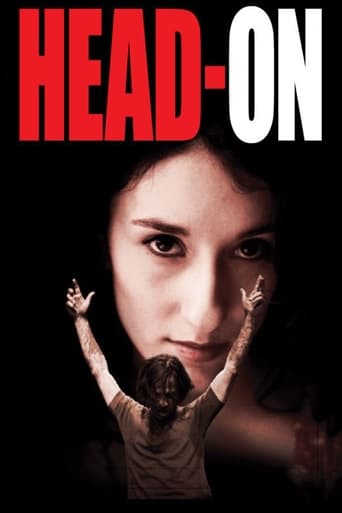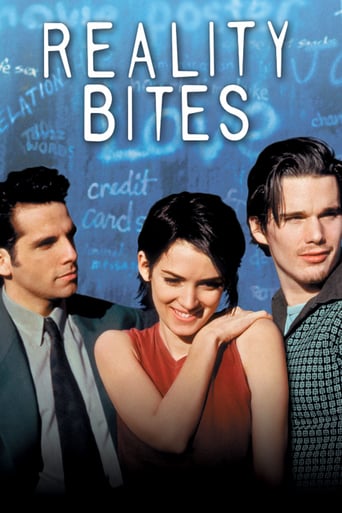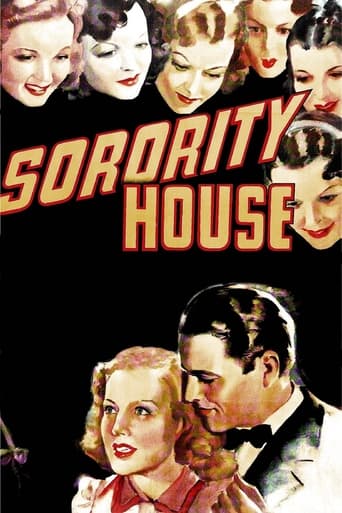
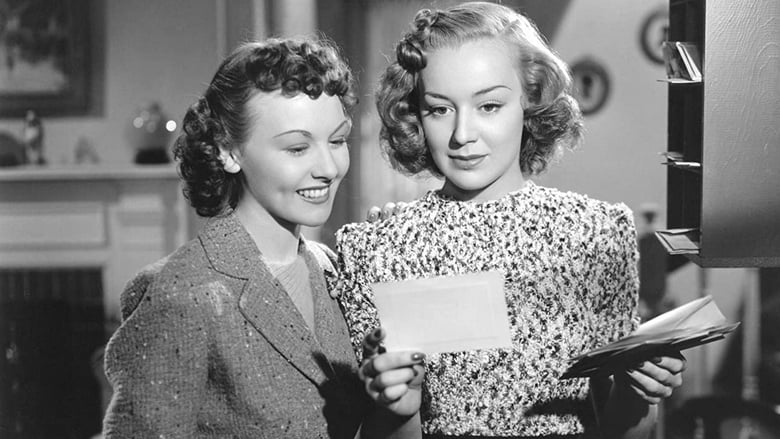
Sorority House (1939)
A young girl begins to wonder if she really fits into the upper-class sorority she's trying to join.
Watch Trailer
Cast
Similar titles
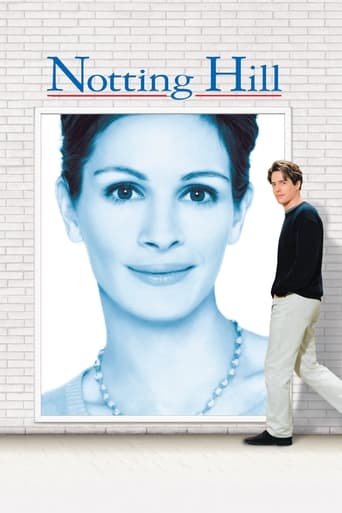

Reviews
The Age of Commercialism
best movie i've ever seen.
It's funny, it's tense, it features two great performances from two actors and the director expertly creates a web of odd tension where you actually don't know what is happening for the majority of the run time.
All of these films share one commonality, that being a kind of emotional center that humanizes a cast of monsters.
Anne Shirley seemed to spend a lot of the thirties in school!! There was "Finishing School" (1934), "School for Girls" (1934), "Girl's School" (1938) until she finally arrived at "Sorority House". Anne was a sensitive actress who often put more into her parts than was there in the first place. Her two big films were "Anne of Green Gables" and "Stella Dallas" but because she had been in movies since the age of four, by her teenage years she was considered a fixture and was passed over for roles she would have been ideal for, in favour of other up and coming actresses (Maureen O'Hara in the remake of "A Bill of Divorcement" and Jane Bryan in "The Old Maid"). So, once again, Anne was back in familiar territory in "Sorority House" as Alice, daughter of a small town grocer who withdraws all his savings so she can attend the prestigious Talbot University.In my opinion this was a much better movie than "Girl's School" and Anne had a chance to add more dimension to her characterization. Once at college dewy eyed Alice falls right in step with the social climbing fever that is gripping the school - although she still retains her country values. Any co-ed who is not a sorority girl is seen as a "dreep" (a combination of dreary and weep). Her two room- mates are Dottie (Barbara Read) who is philosophical about her low chances of being invited to a sorority and Merle, who is frantic to join but whose aunt with her pushy behaviour ruins her chances. Although countrified Alice would ordinarily not have a hope of getting into Gamma, the top sorority house, she makes the acquaintance of Bill (James Ellison) the college hero who takes Alice under his wing and helps her adjust to the hectic social life. To say nothing of spreading a rumor that Alice's father owns a supermarket chain - instead of his one struggling grocery store.Suddenly all the sororities are clamouring for her but with all the invitations come extra expenses, fees etc and Alice's father finds he has to sell his store to pay for all the hidden costs. When Alice's father turns up unannounced at a sorority "Meet the Parents" party, for one brief moment Alice turns into a social snob - ashamed of her own father. He saves the day with oodles of home spun philosophy - telling the story of Abraham Lincoln, preventing a suicide and giving Alice a lecture on freedom of choice when she decides to found a club where sorority members will not be welcolme!!Barbara Read started off as one of the "Three Smart Girls" that made a star out of Deanna Durbin but she really looked too much like Durbin and was replaced in the sequel "Three Smart Girls Grow Up" by Helen Parrish. Veronica Lake and Marge Champion can be glimpsed as co-eds.
Communist and later blacklisted screenwriter Dalton Trumbo gets a script assignment on sorority houses—the possibilities are intriguing and endless. After all, what better hothouse of class elitism is there than making sure your daughter or son meets just the right people and marries only within the proper social circles. Certainly, no Van der Bilt wants their offspring marrying a campus nobody, so why not manage their young lives through something like elitist clubs, otherwise known as sororities and fraternities. The topic seems perfect grist for an avowed enemy of class privilege, such as Trumbo is presumed to be.But then the movie is a programmer, and the early Trumbo is a relative unknown, so conventional values do prevail. Nonetheless, dad Fisher delivers the main message at movie's end. Grief in the world, Dad observes, is caused by "cliques" banding together, whether sororities, clubs or nations, and then coming into conflict. And though Dad doesn't say so, cliques would presumably include the bogeyman of Marxist theory, economic class. Thus, as Trumbo's mouthpiece, Dad manages to come up with a social version of a classless society, which sounds more like choosing your own friends and not letting that go to your head than anything like common ownership of the means of production. It's also in keeping with the general spirit of the times, which exalts the virtues of the common man, especially salt-of- the-earth types like dad Fisher.The movie itself is entertaining enough for a studio programmer, managing some gritty dramatics (the pushy aunt ruining Merle's pledge chances; the suicide attempt) and, of course, the expected sappy romance. But it's really Anne Shirley who shines and holds things together. Her friendliness comes across as so natural and unforced that you can't help but root for her. She's perfect as the unspoiled small town girl. Nonetheless, the movie remains very much a product of Hollywood and its time. In passing—for a more revealing look at college sororities backed by of an A-budget, catch up with TCF's Take Care of My Little Girl (1952). In my little book, it's a real sleeper, despite the gloss.
Before the college film degraded into the gross-out comedy and the slasher flick there was the little seen charmer "Sorority House". It revolves around Alice, a young woman whose main desire in life is to attend college. Her financially struggling father ensures this happens and with this we enter the world of the film, which takes place in a particularly non-descript campus somewhere in the Midwest.This uber-innocent romantic comedy flows along with a very brief running time of sixty-four minutes. It deals mainly with Alice's humble interest in seeing her hopeful roommate at the boarding house garner interest of one of the local sororities, but as fate (read a fraternity member) would have it Alice is instead selected due to a technicality. Alice starts to be overcome by all of the elitism that comes from being involved with the young woman of Gamma House, and in a key scene she chooses the clique over her real family.Given some mild female empowerment moments, it's not a surprise Dalton Trumbo wrote the screenplay, since a year later he'd write the script for "Kitty Foyle", the Ginger Rogers vehicle that can be seen as a fair attempt a work of minor pre-feminism. Here the intention seems almost to expose sororities as merely a choice for a young woman, and not the only way to pave a future, as is mentioned again and again from several characters. There does seem to be some underlying criticism of the elitism and focus on money, which makes it seem pretty edgy for its time.The best moments were spent with Barbara Read's character, Dotty, the young woman who stands on her own two feet and laughs in the face of the sorority that turned her away. It has a certain charm and wit that makes it a nice view, but the running time and underdeveloped character make it seem little more than a trifle. Oh, and the brief suicide attempt seemed way out of place here!
"Revenge of the Nerds" would copy the basic storyline from 1939's "Sorority House"; which has more angst and less humor. Anne Shirley plays Alice Fisher-the daughter of a small grocer who at the last minute gets to go to little Talbot College. On the train she learns that joining a sorority is an essential thing at the school. Unfortunately her late admission means that none of the sororities know about Alice and initially she is not even rushed. Arriving at the train station she asks about sororities but is told by a snooty girl that they are by invitation only. There is an immediate credibility problem here-if you have seen any Anne Shirley movies you know that any sorority in the world would be clamoring to have her join. But the situation regains its lost credibility when Alice's plain Jane roommate Dotty (Barbara Read) calls her a date getter and tells her that the sororities will want her once they see her because she will attract men. You need looks and money to get into these organizations at Talbot and sometimes even that is not enough. Those who don't make it are called "dreeps".Almost all the coeds are Hollywood starlets so a date getter seems irrelevant. Even Dotty has the starlet look, as do three nerd girls in the next room. They try to detune these girls by putting them in glasses and braiding their hair. Marge Champion and Veronica Lake have small parts as average coeds, which should make you wish that you had been the BMOC at Talbot. The actual BMOC is Bill Loomis (James Ellison), he wears a letter sweater and is actually a very nice guy. The Alice-Bill romance is the best part of the film and has a lot of Norman Rockwell charm.Doris Jordan plays Neva Simpson, the nasty queen bee of Gamma-the best sorority. She blackballs poor Merle (Pamela Blake) who is Alice's other roommate. Merle is devastated and suicidal. Shirley was a wonderful actress, not just extremely beautiful but able to project an effortless likability. The film's best scene is her realization that in trying to impress the sorority girls she has hurt her father (J.M. Kerrigan). Beautiful nonverbal acting, which looks even better showcased in "Sorority House", where the other actresses are just not on her talent level."Sorority House" is a little sappy and takes most of its shots at the low hanging fruit of the 1930's sorority system, but Shirley, Ellison, and Kerrigan turn it into a very enjoyable production. Then again, what do I know? I'm only a child.
